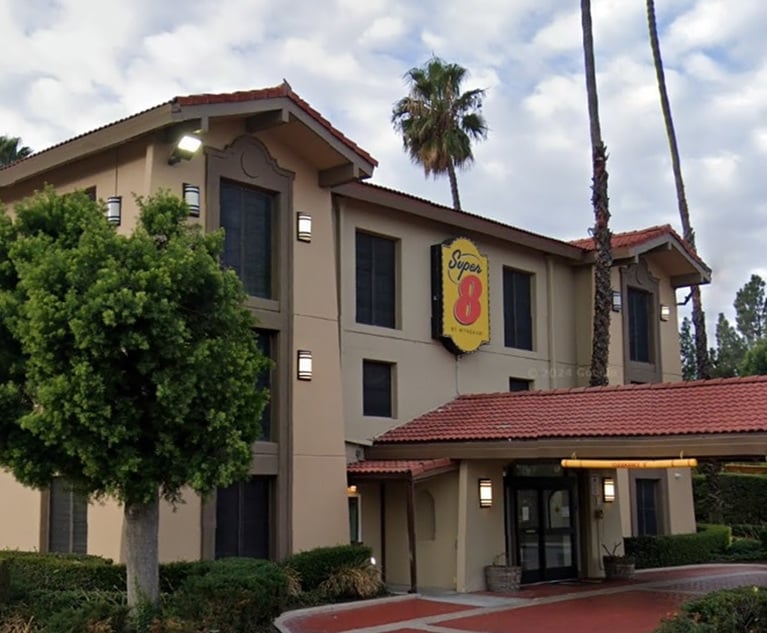Unpublished Opinions for the Week of September 4, 2017
07-4-4126 Hermanns v. Hermanns, N.J. Chancery Div. (Contillo, P.J. Ch.) (23 pp.) Plaintiff sought to amend his complaint to add claims in his action…
August 31, 2017 at 02:06 PM
54 minute read
07-4-4126 Hermanns v. Hermanns, N.J. Chancery Div. (Contillo, P.J. Ch.) (23 pp.) Plaintiff sought to amend his complaint to add claims in his action against his father over a family company. Defendant father was sole shareholder of family company. Plaintiff served as company president. Plaintiff alleged he quit teaching and began working at family company at father's request and that father repeatedly assured him that he had “sweat equity” in the company and a “secure job.” In 2016, father told plaintiff that he had Alzheimer's and both met with father's attorney to discuss transferring ownership of company to plaintiff. The process ended with plaintiff ousted from company. Plaintiff sought to supplement his allegations seeking declaratory judgment and injunctive relief by adding a claim for unjust enrichment and asserting he was promised lifetime employment and “sweat equity.” Plaintiff argued there was no prejudice to defendant since the new allegations arose from the same facts and events. Defendant argued that plaintiff's new claims were futile since his allegation of an oral agreement to inherit the business was not cognizable in New Jersey and plaintiff failed to plead the elements of a claim for unjust enrichment. The court allowed the amendment asserting a promise of lifetime employment and claiming unjust enrichment but denied the claim of a right to “succeed” to the business. [Filed Aug. 23, 2017]
07-5-4135 Conley v. Twp. of Ocean, Tax Ct. (Sundar, J.T.C.) (5 pp.) Township moved to dismiss plaintiff's complaint as untimely. County Board of Taxation issued a judgment dated Feb. 28, 2017, affirming a property assessment and noting that the mailing date was March 14, 2017. All state offices were closed on March 14, 2017, due to a declaration of a state of emergency due to a winter storm. Plaintiff filed a complaint on May 2, 2017, which was one day beyond the 45-day deadline if the time limit was counted from March 14, 2017. The assistant tax administrator testified that the County Tax Board was open on March 14 and employees were present. However, the employees who reported to work that day were not the employees responsible for picking up the mail bin and delivering it to the post office. Thus, the court could not make a “reasonable inference” that the mail placed in the mail bin was delivered to the post office on that day and that the date given was the date on which the judgment was actually mailed. The start date for the 45-day appeal period could not be deemed to be March 14, 2017. [Filed Aug. 24, 2017]
11-2-4127 Levin v. Bd. of Tr. of Ocean Cnty. Bus. Ass'n, N.J. Super. App. Div. (per curiam) (15 pp.) Plaintiffs appealed the grant of summary judgment in favor of defendant in plaintiffs' action to compel defendant to reinstate plaintiffs in defendant's private business association. Plaintiffs further appealed the denial of their motion to enforce litigant's rights. Plaintiffs retained the services of Adam Safeguard & Inquiry Systems, another member of defendant's association. When plaintiffs failed to pay, Adam Safeguard initiated defendant's grievance procedures, after having filed suit in court. Plaintiffs contended the grievance process should be delayed pending disposition of the lawsuit. Defendant subsequently terminated plaintiffs' membership, and plaintiffs filed the present action. After plaintiffs settled their dispute with Adam Safeguard, the trial court ordered the parties to engage in defendant's grievance process. However, the grievance committee recommended the termination of plaintiffs' membership. Thereafter, the parties cross-moved for summary judgment, which the trial court granted in defendant's favor. On a first appeal, the court ordered a new grievance procedure, finding plaintiffs were not afforded the right to confront the grievant or a hearing before defendant. The trial court ordered a new grievance committee, which also concluded that plaintiffs violated defendant's bylaws and recommended rejection of their reinstatement, to which defendant concurred. Defendant then filed the present summary judgment motion, to which plaintiffs cross-moved to enforce litigant's rights. The trial court granted defendant's motion and denied plaintiffs' cross-motion. On appeal, plaintiffs contended they were not provided a fair and impartial hearing because defendant had a conflict of interest in deciding whether plaintiffs should be reinstated, and further argued that Adam Safeguard's refusal to participate effectively ended the grievance. The court rejected both of plaintiffs' arguments, noting that defendant honored all of the procedural requirements set forth by the trial court for the hearing it ordered, and that the members of the second grievance committee were neither defendants nor members of the original grievance committee.
This content has been archived. It is available through our partners, LexisNexis® and Bloomberg Law.
To view this content, please continue to their sites.
Not a Lexis Subscriber?
Subscribe Now
Not a Bloomberg Law Subscriber?
Subscribe Now
NOT FOR REPRINT
© 2025 ALM Global, LLC, All Rights Reserved. Request academic re-use from www.copyright.com. All other uses, submit a request to [email protected]. For more information visit Asset & Logo Licensing.
You Might Like
View All



Trending Stories
- 1Veritext Legal Solutions Announces the Past Acquisitions of Three Alternative Dispute Resolution Firms
- 2Sarno da Costa D’Aniello Maceri LLC Announces Addition of New Office in Eatontown, NJ, and Named Partner
- 3LSU General Counsel Quits Amid Fracas Over First Amendment Rights of Law Professor
- 4An Eye on ‘De-Risking’: Chewing on Hot Topics in Litigation Funding With Jeffery Lula of GLS Capital
- 5Arguing Class Actions: With Friends Like These...
Who Got The Work
J. Brugh Lower of Gibbons has entered an appearance for industrial equipment supplier Devco Corporation in a pending trademark infringement lawsuit. The suit, accusing the defendant of selling knock-off Graco products, was filed Dec. 18 in New Jersey District Court by Rivkin Radler on behalf of Graco Inc. and Graco Minnesota. The case, assigned to U.S. District Judge Zahid N. Quraishi, is 3:24-cv-11294, Graco Inc. et al v. Devco Corporation.
Who Got The Work
Rebecca Maller-Stein and Kent A. Yalowitz of Arnold & Porter Kaye Scholer have entered their appearances for Hanaco Venture Capital and its executives, Lior Prosor and David Frankel, in a pending securities lawsuit. The action, filed on Dec. 24 in New York Southern District Court by Zell, Aron & Co. on behalf of Goldeneye Advisors, accuses the defendants of negligently and fraudulently managing the plaintiff's $1 million investment. The case, assigned to U.S. District Judge Vernon S. Broderick, is 1:24-cv-09918, Goldeneye Advisors, LLC v. Hanaco Venture Capital, Ltd. et al.
Who Got The Work
Attorneys from A&O Shearman has stepped in as defense counsel for Toronto-Dominion Bank and other defendants in a pending securities class action. The suit, filed Dec. 11 in New York Southern District Court by Bleichmar Fonti & Auld, accuses the defendants of concealing the bank's 'pervasive' deficiencies in regards to its compliance with the Bank Secrecy Act and the quality of its anti-money laundering controls. The case, assigned to U.S. District Judge Arun Subramanian, is 1:24-cv-09445, Gonzalez v. The Toronto-Dominion Bank et al.
Who Got The Work
Crown Castle International, a Pennsylvania company providing shared communications infrastructure, has turned to Luke D. Wolf of Gordon Rees Scully Mansukhani to fend off a pending breach-of-contract lawsuit. The court action, filed Nov. 25 in Michigan Eastern District Court by Hooper Hathaway PC on behalf of The Town Residences LLC, accuses Crown Castle of failing to transfer approximately $30,000 in utility payments from T-Mobile in breach of a roof-top lease and assignment agreement. The case, assigned to U.S. District Judge Susan K. Declercq, is 2:24-cv-13131, The Town Residences LLC v. T-Mobile US, Inc. et al.
Who Got The Work
Wilfred P. Coronato and Daniel M. Schwartz of McCarter & English have stepped in as defense counsel to Electrolux Home Products Inc. in a pending product liability lawsuit. The court action, filed Nov. 26 in New York Eastern District Court by Poulos Lopiccolo PC and Nagel Rice LLP on behalf of David Stern, alleges that the defendant's refrigerators’ drawers and shelving repeatedly break and fall apart within months after purchase. The case, assigned to U.S. District Judge Joan M. Azrack, is 2:24-cv-08204, Stern v. Electrolux Home Products, Inc.
Featured Firms
Law Offices of Gary Martin Hays & Associates, P.C.
(470) 294-1674
Law Offices of Mark E. Salomone
(857) 444-6468
Smith & Hassler
(713) 739-1250






